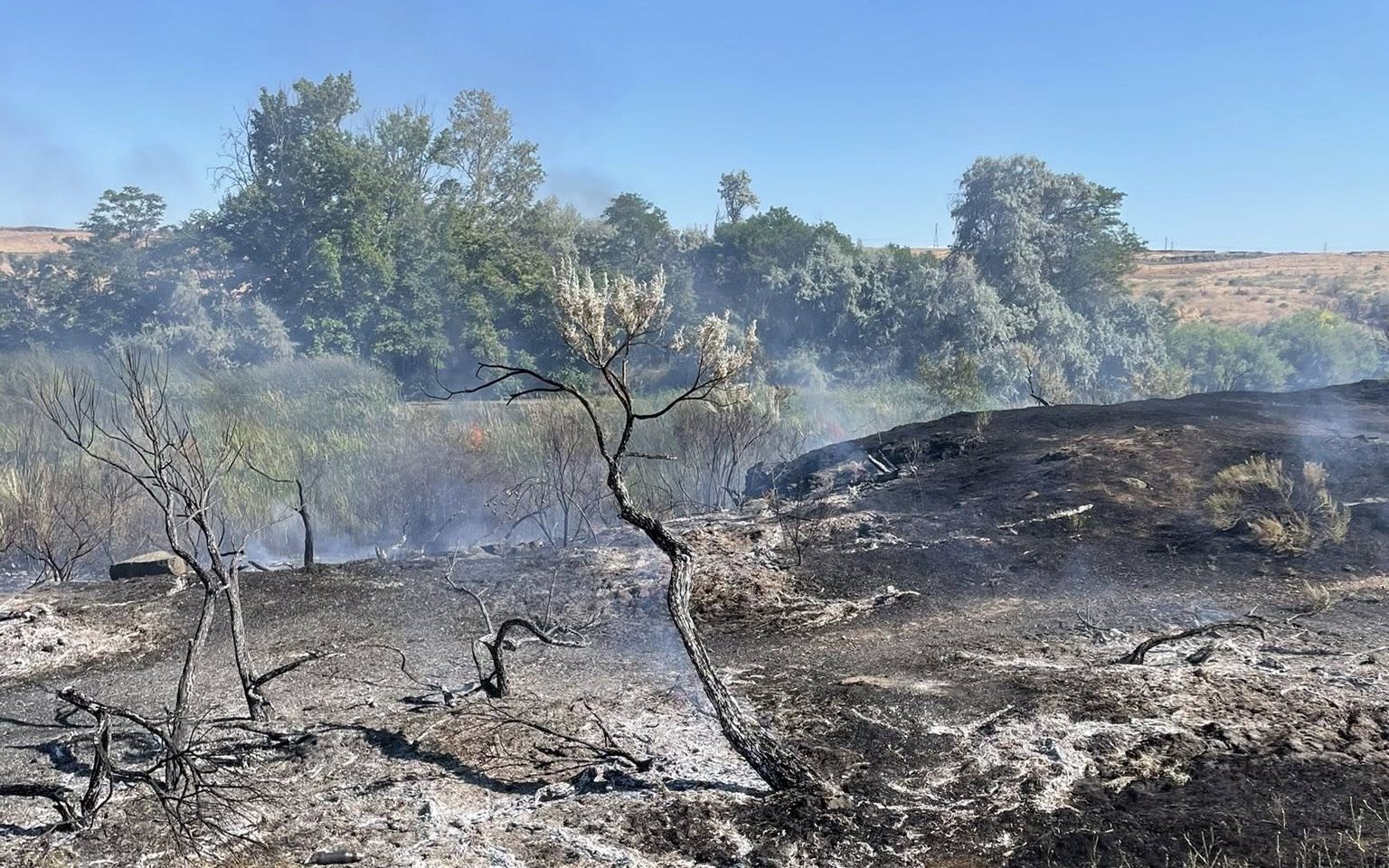East Oregonian Days Gone By for the week of Feb. 25, 2024
Published 5:00 am Tuesday, February 27, 2024

- 1974 — Umatilla Electric Cooperative of Hermiston builds five substations and 13 miles of transmission lines in the Boardman area.
25 years ago this week — 1999
School will go on as normal next week at Pendleton High School.
Well, as normal as possible with a state tournament on site.
With the 2A state boys and girls basketball tournament doubling in size to 16 boys and 16 girl teams, consolation games Wednesday-Friday will be played at Pendleton’s 3 year-old gymnasium.
The tournament will open at 8 a.m. Tuesday at the Pendleton Convention Center. All first-round, winner’s bracket and Saturday games will be at the Convention Center.
That leaves four games a day Wednesday-Friday at PHS, with the first game tipping off at 8 a.m. and the final game tipping off at approximately 12:30 p.m.
“Our location compared to the Convention Center is pretty good,” Pendleton athletic director Jon Peterson said. “The new footbridge makes it nice. We have a nice facility here and we’re capable of seating enough people.
Peterson said the school will go on with as little disruption as possible.
“The challenge is ensuring the high school can operate when the 2A tournament is going on,” he said. “We think we have a good plan. Classes will be held and we’ll have normal school days except we can’t make use of the gym.
———
A grounded freighter showed signs of movement as a heavy tug strained to pull it free from a beach Friday night to begin the journey for a burial at sea.
“So far, we’ve got 30 feet of pivoting movement,’ said Coast Guard Petty Officer Brandon Brewer. “We’ve got something, so that’s great.”
After days of delay, calmer seas finally allowed salvage workers to connect the broken bow of the New Carissa to the tug Sea Victory.
Gray smoke billowed from the tug’s stacks and green water churned beneath its spinning propellers as the boat took up slack on the 1,100 yard-long tow cable connecting it to the Japanese-owned freighter.
Crews planned to keep pulling as long as high tide lasted, which could take the effort into early Saturday morning, Brewer said.
To reach open ocean, the bow section must come off the beach and clear two sandbars in heavy surf. The ship lies in two sections, and the bow must be swung past the partially ured stern section in order to point it seaward and begin the tow to deep water.
———
Snow level readings Friday at Tollgate and Meacham were similar to the levels during the winter of 1996-97 — a point not lost on Natural Resources Conservation Service soil conservationist Steve Jaeger.
“In 1997 was when we had the really bad winter,” Jaeger said. “There’s not a significant difference in the amount of water content between now and what we had at this same time in 1997,” Jaeger said. “But Mother Nature has the final say” in how that water comes off of the mountains.
The winter of 1997 was one of widespread flooding in the Northwest, including flooding on the Umatilla and Walla Walla rivers and Mill Creek.
But Jaeger is quick to point out that the conditions locally in January 1997 were initially different then what we have now. That year there was a lot of rain and a blast of warm weather on top of new snow and frozen soil. That made for a quick runoff.
“A pattern of freezing during the night and thawing during the day, so a little bit comes off at a time, is what we want to see,” Jaeger said. “But if the temperatures stay above freezing 24-hours a day, for an extended period of time, then we could get ourselves in some trouble.”
50 years ago this week — 1974
A Umatilla man has been disqualified as a candidate for the Umatilla school board election in the March 26 election, and he is mad.
John Getty learned this morning that his petition has been disqualified because too many signatures are those of non-registered voters, according to School Supt. Irving Borchert. Tuesday was the filing deadline.
Borchert said Umatilla County Clerk Jessie Bell checked the signatures and made the ruling. Miss Bell was in court this morning and unavailable for comment.
“This is one way to get rid of people if you don’t want them to run,” Getty said.
Getty said he filed the petition a few weeks ago with the school district clerk, and that all the people signing the petition told him they were registered voters.
“If I had only known about this, I could have got lots more signatures,” he added. Getty is bitter about now knowing of his disqualification until the filing deadline had passed.
Getty was seeking position three on the board that also has Maxine Reynolds and Larry Payne as candidates. Dr. Marvin John, incumbent, is the lone candidate for position four.
———
“It was a frustrating kind of session,” says Sen. Mike Thorne, D-Pendleton, about the special session of the Oregon Legislature that ended Sunday.
“We were stampeded into doing some things we didn’t really want to do,” and some things that should have been accomplished were not, he said.
“But we touched all the bases” and approved legislation dealing with energy and consumer protection.
Thorne says he was disappointed in two areas: One, the failure of the House to act on a bill to speed up nuclear power plant construction, and the failure to approve legislation that would have used the state’s bounding authority to raise money for reforesting lands damaged by the tussock moth.
Thorne commented on other action by the legislature:
Wheat Tax — The proposal to increase the wheat tax from one-half to one cent a bushel failed in the House “but we are in a good position” to win approval in the next session. Thorne said he is convinced the proposal is generally supported by wheat farmers.
100 years ago this week — 1924
A Pacific storm lashed Oregon Friday with heavy winds that knocked down trees and power lines, blew over trailers and campers, and disrupted telephone service.
This morning, it was snowing in much of the state.
There were some close calls but no injuries reported during Friday’s wind storm.
In North Albany, a 250-foot fir tree toppled and fell through the roof of Fairmount grade school. Students were sent home for the day. Principal Eldon Wortman said classes will be held Monday in an undamaged portion of the building.
Live wires from a toppled power pole straddled a car on Silverton Road east of Salem, trapping four women for an hour. The wires burned a hole in the roof but the women extinguished the blaze.
In Eastern Oregon, a small twister nearly destroyed a large storage building three miles west of Vale and left the area temporarily without power or telephone service.
Wind gusts reached 95 miles an hour at Gold Beach on the Southern Oregon Coast and 65 m.p.h. at Newport farther north.
Gusts of 70 m.p.h. and extensive power outages were reported in the Portland area.
———
The acreage of barley in Umatilla county will probably be heavier this spring than in normal years, according to a prediction made by Fred Bennion. The chief cause for a heavier acreage exists in the threatened drought that California farmers are facing. The supply of water for irrigation there this year will be short, and the barley crop of 30,000,000 bushels which producers in that state normally grow undoubtedly will be reduced this year.
For these reasons, and because California barley is the chief competitor of Oregon grown barley, more of the crop will probably be seeded this spring than for several years, the county agent predicts.
In the production of early potatoes the interests of California and Oregon are common, and the foregone conclusions that the crop from the southern state will be short undoubtedly will result in some increase in the plantings of the crop here, Bennion said. He does not anticipate any over production of early potatoes, due to the lack of ready cash on the part of many farmers for purchasing seed.
———
The mild weather that has prevailed during the past winter has resulted in a saving of $2,150.07 on the fuel bill for heating the Eastern Oregon state hospital as compared with the same season a year ago, according to Supt. W. D. McNary. The new unit of the hospital was heated this year for the first time, too, so that, had the weather been of the same degree of cold this winter as it was last winter, a natural increase could have been expected.
The figures used by Dr. McNary includes the months of October, November, December, January and February of the winter of 1922-23, and the same months during the winter of 1923-24.
The hospital is equipped to burn either oil or coal, but this past winter, except for once or twice in emergencies when the institution was short of coal, oil was not used. What little oil was used cost $2.16 the barrel. Slack coal is burned, and it was purchased at a cost of $1.25 the ton.






